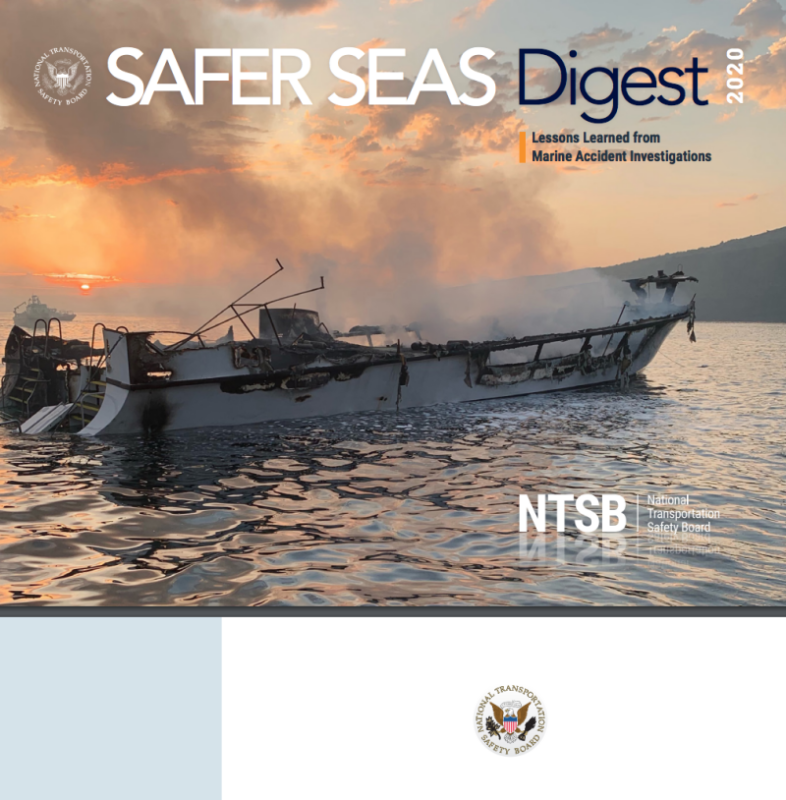The National Transportation Safety Board released Tuesday the Safer Seas Digest 2020, a compendium of the NTSB’s maritime accident investigations involving loss of life, injuries and significant property damage completed in 2020.
Safer Seas Digest 2020 details lessons learned from 42 maritime accidents involving contact with fixed objects, sinkings, collisions, fires, explosions, flooding, groundings, and capsizings. Among the investigations included in the 112-page report are the fire aboard the Conception where 34 lives were lost and the collision that took 11 lives aboard the USS Fitzgerald.
“These tragedies remind us that whether we are serving in the nation’s armed forces, scuba diving for recreation, fishing on a trawler, or sustaining maritime commerce, we are all reliant on safety measures that must be in place before we step aboard,” NTSB Chair Jennifer Homendy, said in a statement announcing the release of the publication. “Mariners can use the lessons learned in the Safer Seas Digest to prevent future accidents and owners and operators can use it to help ensure a culture of safety at sea.”
The lessons learned in the Safer Seas Digest 2020 fall into 14 categories:
- Navigating through bridges,
- Standard operating procedures,
- Smoke detection,
- Voyage planning and dynamic risk assessment,
- Effective communication,
- Operating in high-water/high-current conditions,
- Lithium-ion battery hazards,
- Crew training,
- Vessel speed,
- Storage of flammable or combustible materials,
- Closing ventilation inlets during a fire,
- Effective hull inspection and maintenance,
- Inspection of control linkages, and
- Fatigue.
“With every investigation we learn new safety lessons to prevent or mitigate futures losses, but only when marine stakeholders at all levels of the industry apply these lessons is marine safety improved,” said Chair Homendy. “I hope that the Safer Seas Digest 2020 provides the marine industry with essential information to better understand the safety issues confronting it, and the pathway to making maritime transportation safer.”
The NTSB’s Office of Marine Safety investigates major marine causalities upon the navigable waters of the U.S. and accidents involving U.S. flagged vessels worldwide.




